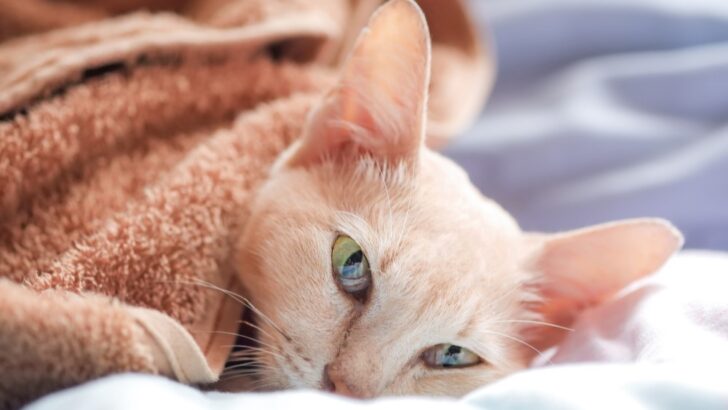Thinking “My cat is dying and I have no money” is probably the thing you feared the most, and now it has become your reality. I understand how difficult this must be for you. Our feline buddies become our family, and there’s nothing in this world we want more than to help them and relieve their suffering.
Whether it’s getting a treatment plan or euthanizing your fluff, vet visits can be very expensive. No one wants to lose their beloved feline, and they fear the day when they’ll have to say goodbye. Because of that, we go out of our way to help them stay healthy and keep us company for a long time.
However, when you have no money to do so, there’s little you can do, and it’s the worst thing in the world. You see your furbaby suffering, and you have no power to help her… It’s truly heartbreaking, and I’m deeply sorry that you’re in this situation.
Although you may not be able to afford to put down your kitty, there are some things you can try to help her or at least give her some relief. If you’re interested in learning more, keep on reading. We’re here to help you through this difficult situation.
My cat is dying and I have no money: Some things you can do
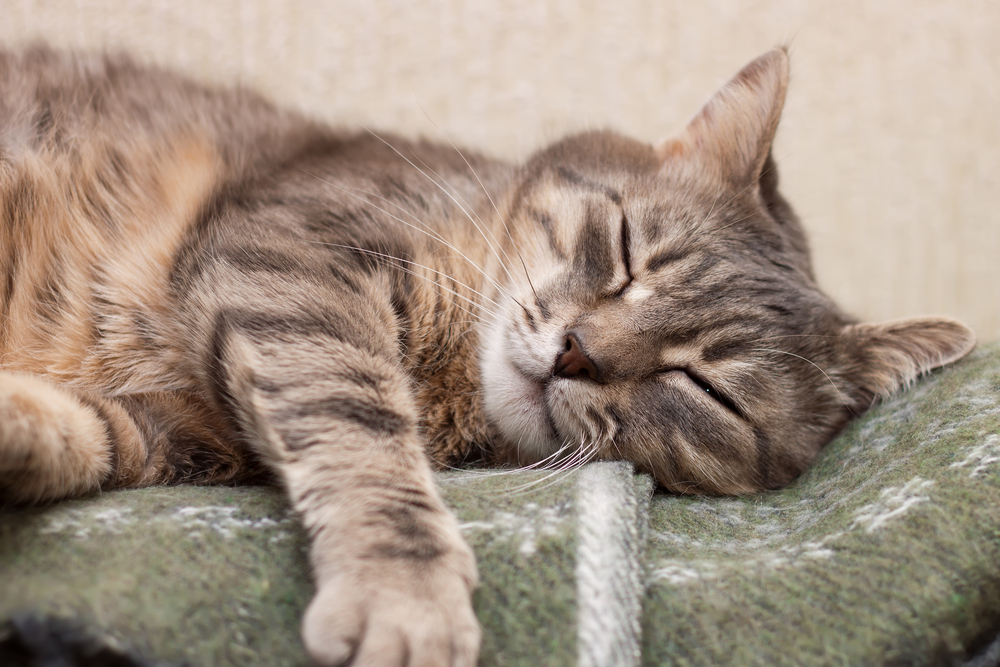
We understand how incredibly difficult it can be when you realize that your beloved cat is reaching the end of her life. It’s a heartbreaking moment, and making the right decision for your furry friend can be overwhelming.
Not only will emotions run wild during this time, but you’ll also have to think about the financial aspect of putting down your beloved kitty. If you find yourself in a situation where your cat is dying and you’re unable to afford the cost of euthanasia, there are some other options to consider.
One option is reaching out to your local vet, animal shelters, or rescues, who may offer free or discounted services. If you’re not in a situation where you can afford euthanasia, let’s explore some other things you can do, as well.
1. Contact your vet
To ensure your cat gets the best and most humane care possible, the first thing you should do is reach out to your vet. They already know your feline buddy well, so they’ll be able to discuss options for euthanizing your kitty.
Remember, there may be a fee involved for the care provided during this difficult time, but don’t worry – there’s always a chance they will be flexible. If the options your vet presents seem too expensive, don’t be shy to explain your situation.
Sometimes, vets work with you by offering you a payment plan, or even dropping some of the costs just to make sure that your cat passes away in the most humane manner. Most vets are loving and compassionate caregivers, so it’s always worth asking if there’s any way they can help you and your beloved fluff.
2. Visit local shelters
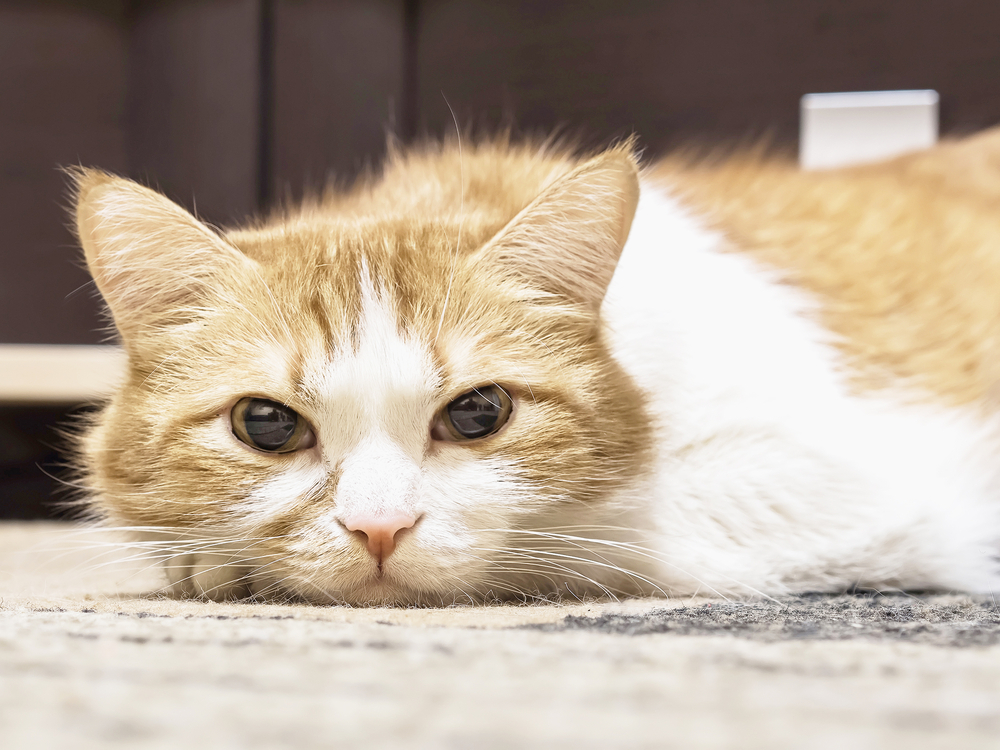
If your vet isn’t able to help you and accommodate your budget, don’t worry. There are still some other options you can try out. For example, you should get in touch or even visit your local animal shelter.
These organizations are always full of people who genuinely love and care about the well-being of our furry friends, so they’ll do their best to work with you and the situation you’ve found yourself in.
There’s one catch, though… You may have to transfer the ownership of your cat to the shelter. But, don’t worry, it’s not as serious as it may sound. By doing this, you’re showing them you trust them with the responsibility of making sure your fluff receives the best possible care.
Plus, they’ll take care of any necessary arrangements, such as humane euthanasia if it’s necessary. It will be a lot easier for them to do it than you, and your cat will receive the care she needs and deserves.
3. Pet insurance
There’s one proactive option to consider when it comes to preparing for your cat’s passing: pet insurance. I know, I know… For the entirety of your cat’s life, you avoid thinking about the day when you’ll have to say goodbye to her. Sometimes, however, it’s good to think about it ahead of time.
Although it means you’ll add a little extra to your monthly bills, it’s a smart investment that could save you some money in the long run, and help you cover the cost of any procedures your feline may need. Who knows, maybe one of them could even extend your cat’s life? It’s definitely something worth considering.
How do you know your cat is dying?
Before panicking and thinking that your cat is dying and you have no money, calm down and think if it’s really that serious. Our feline friends can get sick, and it’s not always as dangerous as we may think. Here are some things that may indicate your cat’s life is coming to an end.
1. Her behavior changes
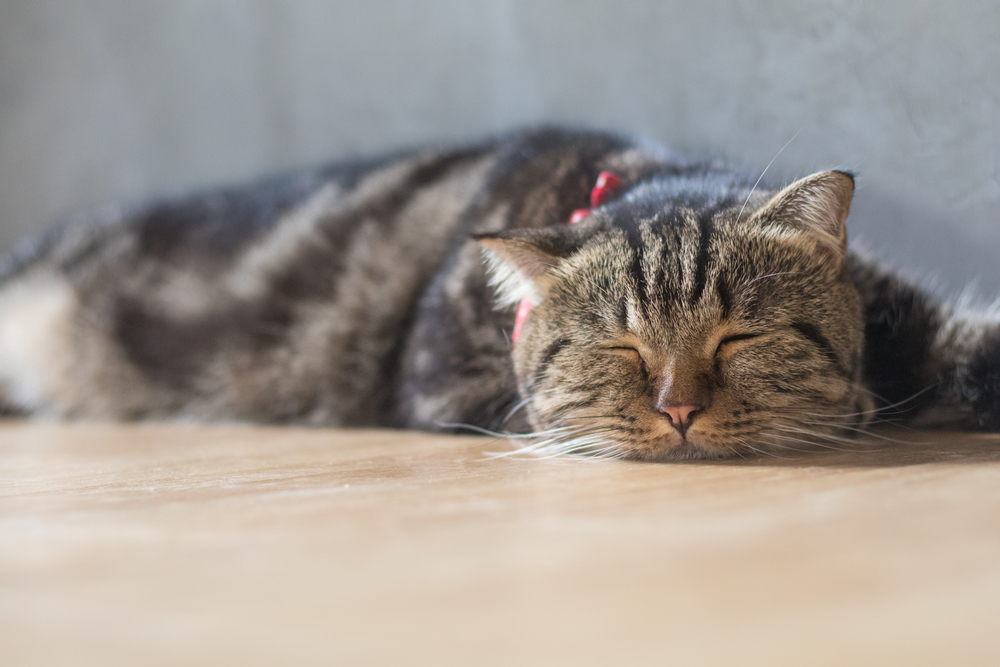
When your cat is not feeling well, the first thing you may notice is a major change in the way she acts. Let’s say your fluff used to be super friendly and outgoing, always ready to hang out and make new friends. But now, suddenly, she’s a grumpy loner who’s irritated by everything.
Unfortunately, these sudden changes in behavior are usually caused by pain and your fluff not wanting to be touched. It’s like she’s telling you she’s not feeling well and wants you to give her some space. You should always respect that.
When a cat senses that her days are coming to an end, even the most independent fluffs can start seeking comfort from their dear families. Suddenly, they’re drawn to the people they trust and love the most during those hard times, and it’s both the most heartbreaking and heartwarming thing in the world.
2. Changes in her appetite
When cats are feeling sick, they can become really picky about their food and water. It’s important to keep in mind, however, that just because a cat refuses to eat, it doesn’t mean that she’s dying, of course.
But, if your cat hasn’t eaten anything for two or three days straight, that’s definitely a cause for concern. If this happens, it’s important to take them to the vet for a check-up, just in case.
A missed meal here and there is normal, but going without food for a couple of days could mean your fluff needs some professional help. Although losing her appetite doesn’t automatically mean your cat is at death’s door, it’s definitely something you shouldn’t take lightly.
Look for other symptoms that may accompany her loss of appetite. Seek advice from professionals about digestive disorders that could be connected to poor appetite, diarrhea, vomiting, or constipation.
3. Changes in the way she looks
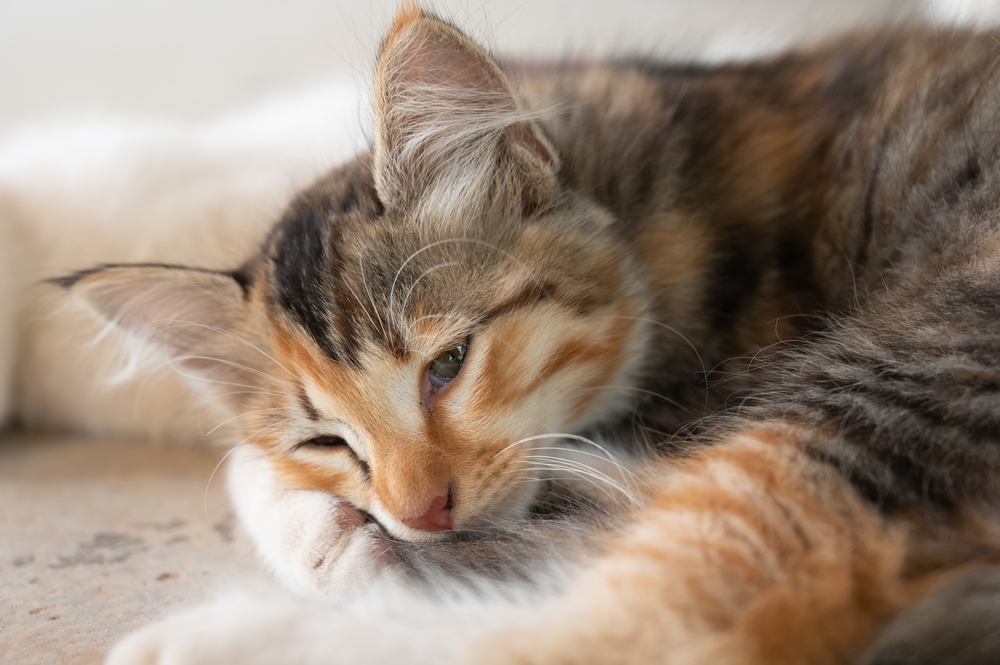
Because she’s suffering and losing energy, a cat whose life is coming to an end may not be able to groom herself as well as she usually does. As a result, her fur becomes messy and unkempt.
On top of that, her lovely fur may start coming out in small clumps, or she may shed excessively. It’s definitely a hard thing to witness, and it really shows just how weak your lovely feline friend is.
Sometimes, when a cat is in such a bad state, she may even end up urinating on herself, which can lead to a not-so-pleasant smell and her fur getting dirty and matted.
Look into her eyes and try to see if there are any changes there, too. When a cat is close to her last days, you may notice her eyes are dilated and have this sickly look to them. They may even appear glazed or look as if your fluff is going blind.
Seeing your cat so dehydrated and lost that her eyes are sunken in and she doesn’t even blink when you touch the corner of her eye, is truly heartbreaking to witness. If this happens, you may want to say your final goodbyes.
4. Check her breathing and her heartbeat
If you’re worried about your kitty’s health declining, it’s a good idea to keep an eye on her breathing and her heartbeat.
To check your fluff’s heartbeat, simply place your hand over her chest for about fifteen seconds, count the beats you feel, and then multiply that number by four. Normally, a cat’s heartbeat falls between 140 and 220 beats per minute. If you notice anything lower, it could be a cause for concern.
As cats approach the end of their life, their breathing may become slow and weak. If you notice a faint heartbeat along with hard breathing, it’s definitely something you shouldn’t ignore.
Checking your cat’s breathing is done in a similar manner. Observe her breath for about 15 seconds and then multiply the number by four. These are just some simple ways to monitor your cat’s health, especially if you don’t have a vet close by or can’t afford another check-up.
